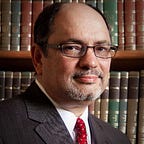History of Mardi Gra
In French, Mardi Gras means “Fat Tuesday” and is celebrated the day before Ash Wednesday as a last “fling” before the 40 days of self-denial of Lent which precede Easter. Lent is a word that comes from the Middle English word “lente” which means “springtime” — so named for the season of the year in which it usually occurs. While the practice of Lent is not mentioned in the Bible, it has been a tradition in the Christian world since the mid 4th century. It seems to parallel the 40 days of fasting in the wilderness that Jesus experienced following his baptism.
Origin
Historically, Lenten fasting became mandatory, especially the abstinence from eating meat. While recommended by St. Athanasius, bishop of Alexandria in his Festal Letter III to his flock in Egypt in 331 AD, by the Middle Ages Lent was enforced throughout Europe, especially the forbidding of meat during the final weeks before Easter.
Carnival
The word carnival comes from an old Italian word that means to “go without meat” or “removal of meat.” Festivals like Mardi Gras sprang up throughout parts of Europe as a means to prepare for the coming times of self-denial. Venice especially was a “party town” for centuries with its Carnevale di Venezia and its elaborate masks, which are still readily available in shops there today. In England, the Tuesday just before Ash Wednesday is called Shrove Tuesday, following Shrove Monday and is celebrated by eating rich food that won’t be consumed during Lent. In the British Isles and some former countries of the British Commonwealth, Pancake Tuesday is a popular way of celebrating the day and eliminating rich foodstuffs from the pantry during Lent.
Meat
As the Protestant Reformation spread throughout Europe, Lent became regarded more as a Roman Catholic institution and was increasingly ignored by Protestants as a traditional observance starting from the early 16th century on. This was precipitated by the famous “Affair of the Sausages” when Ulrich Zwingli, the pastor of the Grossmunster (Great Minster) church in Zurich, spoke in favor of eating sausage during Lent, in defense of a dinner at the home of his friend the local printer. Though he did not himself enjoy sausages, Zwingli argued that Lenten meat fasting should be voluntary rather than mandatory. This tendency did not reverse, especially in the US, until the 1980s. Today, more Protestant churches participate in Lent with devotions and Scripture readings, as well as special Ash Wednesday services.
What are the customs you observe on Mardi Gras?
Bill Petro, your friendly neighborhood historian
www.billpetro.com
If you enjoyed this article, please consider leaving a comment, or subscribing to the news feed to have future articles delivered to your feed reader, or to your email. Please hold down the clap button below to help others find it. The longer you hold it, the more claps you give!
